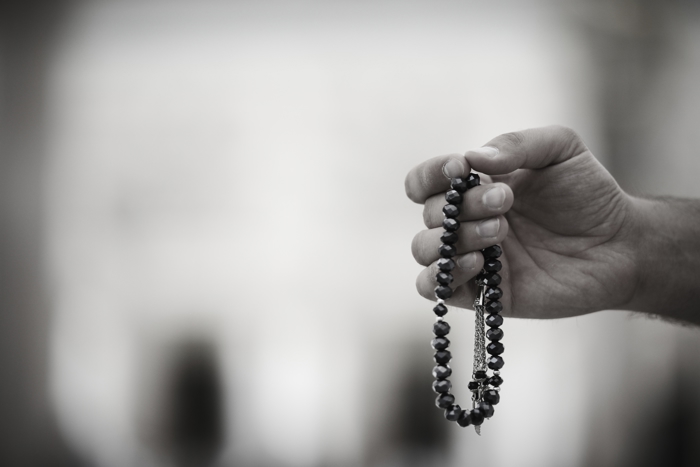Fasting and health
Many Muslims want to fast during Ramadan. Most healthy adults can tolerate fasting for a limited amount of time if they consume enough nutritious food and drink between sunset and sunrise.
Children and adults with a mental illness are exempt from the requirement to fast. The same applies if fasting could make your condition worse or make you ill for longer than you would otherwise have been. You can also defer or be exempt from fasting in some life situations (for example, due to age, pregnancy, or breastfeeding) and in certain other circumstances (for example, long journeys, demanding physical work, active military service, or crisis management).
Illness and taking medication while fasting
If you are ill, you can opt not to fast during Ramadan if doing so might make you feel worse or remain ill for longer than you would otherwise have done.
Fasting is interrupted by medication which is taken through your nose or throat. However, if not taking essential medication could pose a serious health hazard for you, you are permitted to delay your fast or disregard the ban on taking medication.
You should therefore avoid fasting if you are ill or taking life-supporting medication. This applies if you have conditions or illnesses such as high blood pressure, mental illness, diabetes, asthma, COPD, HIV, and many other conditions. The same applies to elderly people who have difficulty fasting, for example if it would cause their blood pressure to become too low or make them dizzy from not drinking water for a whole day.
Speak to your doctor if you still wish to fast
If you have gastric ulcers, heartburn, gastritis or an open hernia, you should also speak to your doctor if you wish to fast.
Diabetes and Ramadan
Fasting can be dangerous for people with diabetes. Avoid fasting if you have a medical condition that is aggravated by fasting.
It may be possible for you to fast even if you have diabetes, but this will require extra effort and careful planning, and you should speak to your doctor first.
In order to avoid harming their health, anyone with diabetes should follow some simple advice if they decide to fast despite their condition. The advice has been developed in consultation with the Diabetes Association and the Islamic Council of Norway:
- If you decide to fast despite your condition, you must consult your GP before fasting.
- You will need to test your blood sugar regularly. This will not interrupt your fast.
- When you interrupt your fast at sunset, you should choose foods and drink which will not increase your blood sugar level sharply.
- You must stop fasting if you are taking medication that lowers your blood sugar level, and this level falls too far.
Pregnancy and breastfeeding during Ramadan
You should not fast if you are pregnant or breastfeeding. Instead, you can delay your fast until after you have given birth and once you have finished breastfeeding. The best thing for your unborn child is for you to eat nutritious foods and drink regularly. Research has not shown any harmful effects on the foetus as a result of fasting during Ramadan, but we still do not know enough to be certain that it is safe.
If you still decide to fast, you should make sure you eat nutritious food and drink enough between sunset and sunrise. Avoid unnecessary daytime physical activity. You should stop fasting if you:
- notice your unborn child moving around less
- are dizzy or exhausted
- are nauseous or vomiting
Speak to your doctor if you are fasting.
Good eating habits during pregnancy
While you are pregnant, you must make sure you have a varied and healthy diet which gives you all the nutrients you need.
Symptoms to watch out for while fasting
You may experience discomfort while you are fasting. However, you should pay special attention to certain symptoms, because they may be signs of illness.
- If you feel tired and dizzy, this may be a sign of low blood pressure, and you should see a doctor.
- If you feel nauseous and dizzy and find it difficult to concentrate, these may be signs that you have not had enough to drink and are dehydrated. You should therefore drink a lot between sunset and sunrise.
- Not drinking enough during Ramadan will increase your risk of your developing kidney stones.
- It is common to experience constipation, indigestion and heartburn when fasting. To avoid this, it is important that you eat healthily and appropriately when you can eat.
- Many people experience headaches and migraines while fasting.
- If you intend to exercise while fasting, it is recommended that you exercise gently at the end of the day, shortly before you can eat and drink again.
